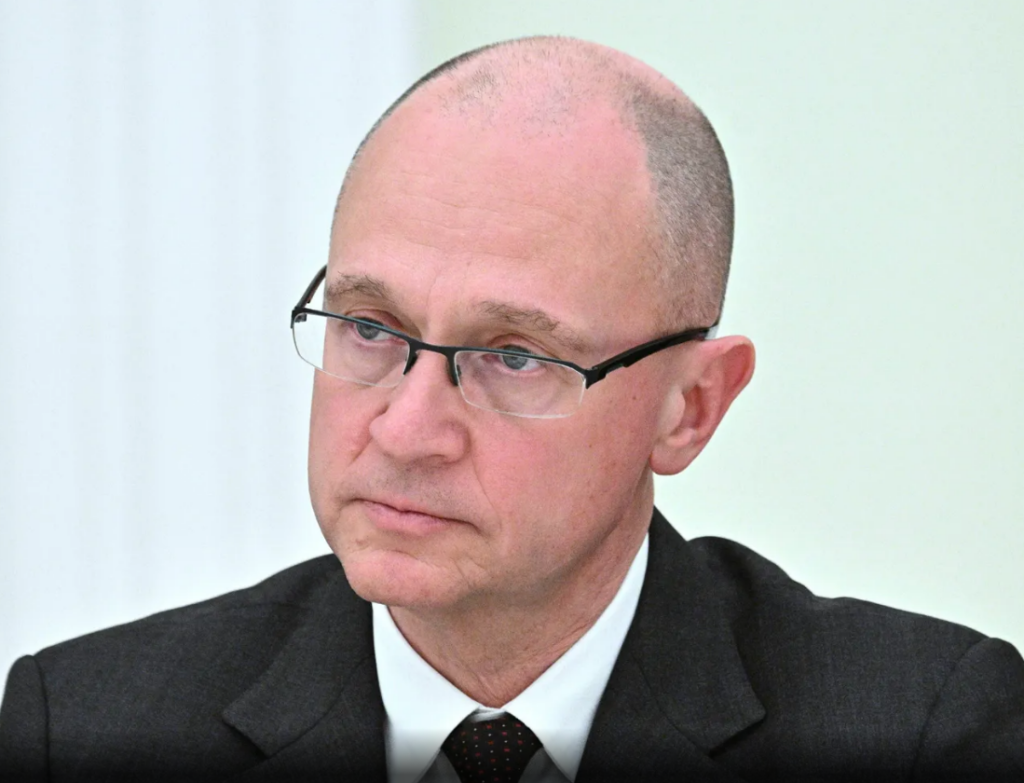A SPIEGEL column by Mikhail Zygar
Vladimir Putin’s repressive apparatus does not even stop at his own supporters. The authorities have classified two pro-Kremlin Telegram channels as foreign agents and closed them.
August 24, 2024

The Friday before last, the Russian Ministry of Justice recognized two propaganda Telegram channels as foreign agents: Nezygar (Non-Zygar) and Brief. The event is surprising in every way.
Let me start with the fact that Nezygar, the most popular and influential pro-Kremlin channel, was named after me. It was created in 2016, when I published my book Endgame: The Metamorphoses of Vladimir Putin. From the very beginning, the channel was run with the support of the Russian presidential administration – and its name Nezygar means that its content should be the opposite of my book.
Nezygar became famous for its alleged insights into the Kremlin, but in reality these were Kremlin-inspired leaks; later, they were joined by kompromat, that is, compromising material that various Russian politicians commissioned from each other.
For the first five years, I constantly had to answer questions from colleagues and explain that I had nothing to do with it.
Nezygar was the first Telegram channel in Russia, before that Telegram was only known as a messenger service that offered anonymity. But it was this Telegram channel, which published alleged Kremlin secrets, that opened up completely new possibilities for the app: anyone could create a fake news story, pose as an insider and thus create a source of scandal out of nothing.
This was at a time when independent media in Russia was still strong. We believed then in the future of journalism, that younger generations of Russians would not accept a dictatorship. But it was precisely at this point that the Kremlin began to take the initiative.
When the first Telegram channels were created, Vyacheslav Volodin was in charge of domestic policy in the presidential administration. He is considered the originator of the ultra-patriotic and conservative concept that Putin pursued after his re-election as president in 2012. In this system, money ruled everything: Volodin had various contractors whom he entrusted with sensitive political tasks and paid in cash.
One of these contractors created Nezygar.

Kirijenko changed contractors
In 2016, there was a reshuffle in the Kremlin. Putin fired Vyacheslav Volodin for excessive political ambitions – the politician managing domestic policy seriously believed that he could succeed the president and was punished for it. He was relegated to the post of speaker of the State Duma, a completely insignificant position in the Russian political system. His former really important post was taken by Sergei Kiriyenko, who had previously headed the Russian nuclear corporation Rosatom.
Kiriyenko kept the old system, but changed all the contractors. This meant that the pro-Kremlin Telegram channels also changed hands.
Over the years, the Nezygar channel was run by different people and sold to new owners more than once, but it remained loyal to Putin – it only changed the clan whose interests it served.
Nezygar was a trendsetter
An entire industry followed Nezygar’s example: dozens of anonymous media appeared, publishing rumors and gossip, dirty tales, kompromat, hacked correspondence, and fictitious “investigations.”
When Putin’s regime abolished all traditional media – newspapers, magazines, TV and radio stations – all quality journalism moved online: new YouTube channels, newsletters, news websites, and mobile phone apps appeared. However, alongside the large number of independent online investigative media, a whole new category of media specializing in commissioned stories also developed – it flourished in Telegram, where authors can remain anonymous.
The established system of Russian media collapsed with Russia’s 2022 attack on Ukraine. In the first week of the invasion, military censorship was essentially introduced and all independent media ceased to exist. At the same time, a struggle for the redistribution of the advertising market began in Russia.
Several dozen people who worked mainly for pro-government Telegram channels were arrested – mostly on charges of extortion. Allegedly, they had demanded money from the protagonists of their publications in return for not spreading compromising information about them.
Pro-Kremlin media suddenly seen as unreliable
In the summer of 2023, former FSB colonel Mikhail Polyakov was arrested. He was accused of patronizing the most popular pro-government Telegram channels, including Nezygar and Brief, but of having started “trading” without the knowledge of the presidential administration – that is, making money and not sharing it with his superiors. But even after Polyakov’s arrest, these Telegram channels continued to post.
In 2024, Sergei Kiriyenko and Alexei Gromov, another deputy head of the presidential administration in charge of the media, revised the old rules of the game. Because of the war, they tightened the boundaries. While the publication of sensitive information used to be a matter of money, now everything is changing. Even minimal remnants of freedom must be destroyed, everything must be 100 percent controlled.
Anonymous, albeit pro-Kremlin media, are now considered unreliable.
The classification of the main political Telegram channels as foreign agents is a new milestone in the modern history of Russian propaganda. It means that no deviations, not even the slightest, from the general line are possible.

A revealing tantrum
Journalist Ekaterina Vinokourova, deputy editor-in-chief of the publication “Brief”, had a very revealing tantrum a few hours before the decision of the Ministry of Justice. She published an extremely emotional text about how the authorities have changed their attitude even towards loyal journalists like her due to the events in the Kursk region.
“You still do not accept the trend of denunciation, the endless restrictions, you do not consider the State Duma deputies to be gods about whom one cannot say too much, and finally, you just want to achieve justice. After all, you are interested in what is really happening in the Kursk region and who needs help there. Any of these points could now serve as a reason to classify you as a foreign agent.”
At the end of her text, she calls on the regime: “Stop fighting against those who remained in the country. Stop the endless pressure, denunciations, the search for an internal enemy and the flood of prohibitive laws.”
The post, of course, had no influence on the authorities’ decision.
Loyalty as a religion
Both Telegram channels were shut down almost immediately. Of course, the media, whose raison d’être is to serve the authorities, can no longer exist as soon as the authorities no longer consider them their own.
Repression against followers is not at all surprising. It is even a tradition. And we are not talking about the distant Stalinist times of the Great Terror, but about the more recent Soviet period, the 1960s and 1970s, when all of Russia’s current leaders began their careers.
In the Soviet Union, punishment of followers who slightly exceeded the limits of what was permissible was quite common. The Soviet state ideology was akin to a religion, and any deviation from it was considered heretical.
In modern Russia, there is no such ideology. Today the religion is unconditional, ostentatious loyalty.
Translated by J. Gather
